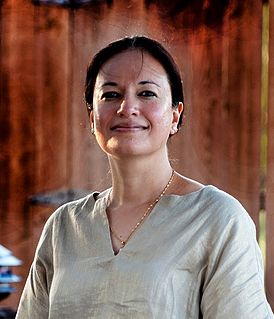A Quote by Alexander Hamilton
To answer the purpose of the adversaries of the Constitution, they ought to prove, not merely that particular provisions in it are not the best, which might have been imagined; but that the plan upon the whole is bad and pernicious.
Related Quotes
[T]he Constitution ought to be the standard of construction for the laws, and that wherever there is an evident opposition, the laws ought to give place to the Constitution. But this doctrine is not deducible from any circumstance peculiar to the plan of convention, but from the general theory of a limited Constitution.
The history of the human race, viewed as a whole, may be regarded as the realization of a hidden plan of nature to bring about a political constitution, internally, and for this purpose, also externally perfect, as the only state in which all the capacities implanted by her in mankind can be fully developed.
The Constitution of India seeks to guarantee respect for the rule of law, the independence of the judiciary, and the integrity of the electoral process. But time and again, provisions of the Constitution of India have been flagrantly violated in Kashmir, and the ideals that it enshrines have been forgotten.
The interpretation of the laws is the proper and peculiar province of the courts. A constitution is, in fact, and must be regarded by the judges, as fundamental law. It therefore belongs to them to ascertain its meaning, as well as the meaning of any particular act proceeding from the legislative body. If there should happen to be an irreconcilable variance between the two, that which has the superior obligation and validity ought, of course, to be preferred; or, in other words, the Constitution ought to be preferred to the statute, the intention of the people to the intention of their agents.
In the split-second before someone prepares to answer a question, he will consciously or subconsciously evaluate what the best possible answer might be. For a truthful person, the best possible answer might omit some information. It might have a few extraneous details. But it will still offer the information requested.
If we could sufficiently understand the order of the universe, we should find that it exceeds all the desires of the wisest men, and that it is impossible to make it better than it is, not only as a whole and in general but also for ourselves in particular, if we are attached, as we ought to be, to the Author of all, not only as to the architect and efficient cause of our being, but as to our master and to the final cause, which ought to be the whole aim of our will, and which can alone make our happiness.
As a philosopher, if I were speaking to a purely philosophic audience I should say that I ought to describe myself as an Agnostic, because I do not think that there is a conclusive argument by which one can prove that there is not a God. On the other hand, if I am to convey the right impression to the ordinary man in the street I think that I ought to say that I am an Atheist, because, when I say that I cannot prove that there is not a God, I ought to add equally that I cannot prove that there are not the Homeric gods.
The laws are, and ought to be, relative to the constitution, and not the constitution to the laws. A constitution is the organization of offices in a state, and determines what is to be the governing body, and what is the end of each community. But laws are not to be confounded with the principles of the constitution; they are the rules according to which the magistrates should administer the state, and proceed against offenders.
































